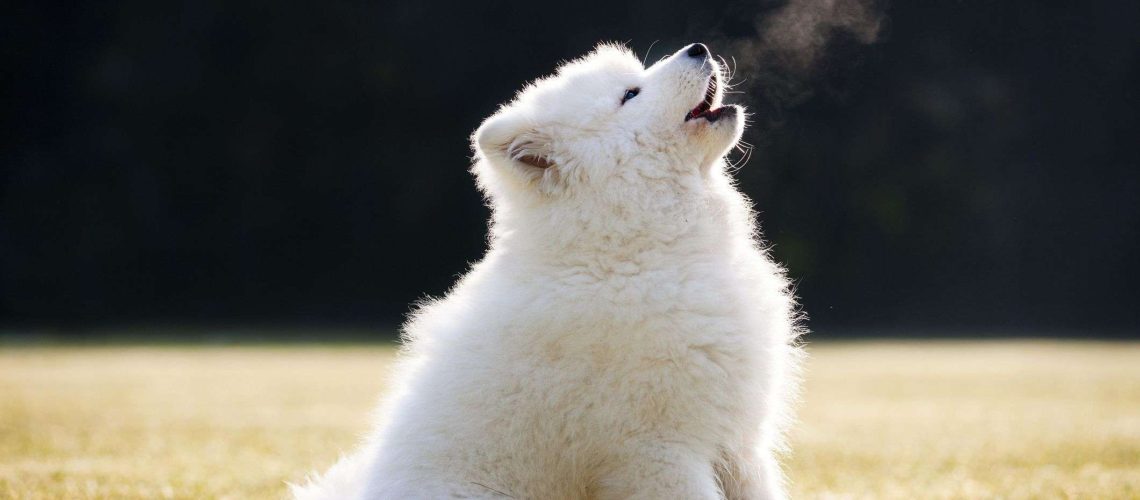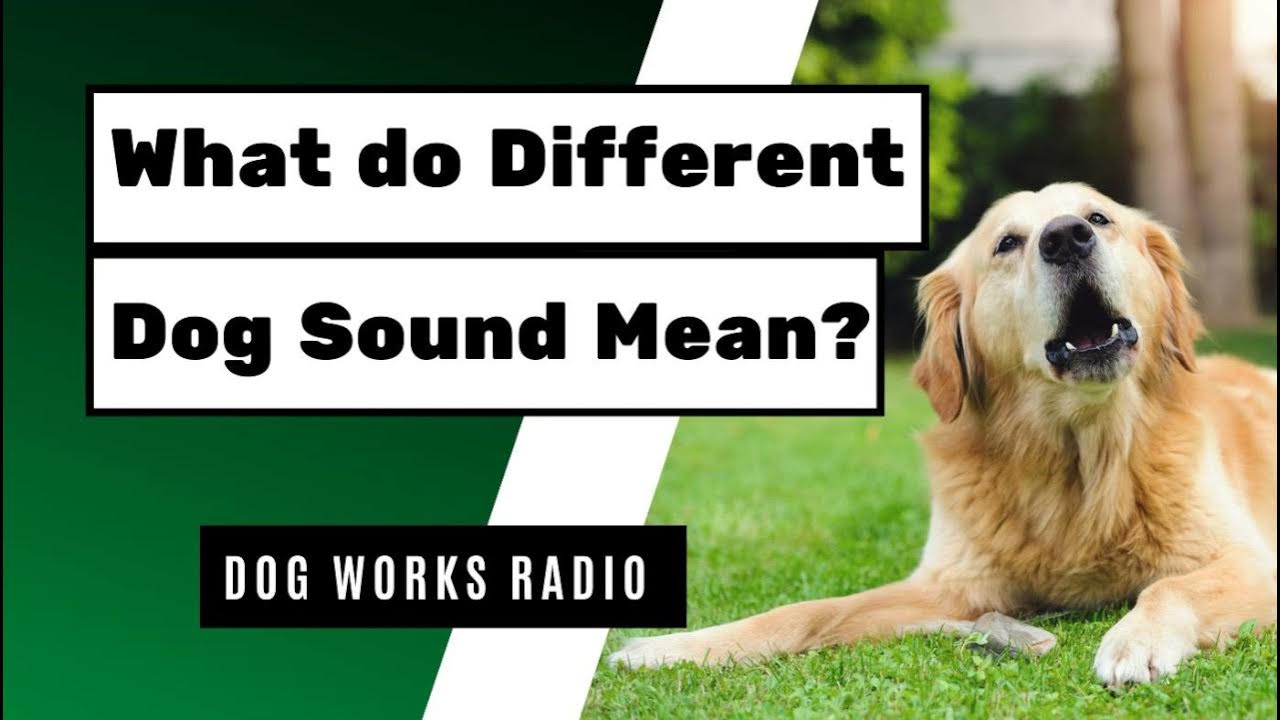Key Takeaways:
- Howling is a natural form of communication for dogs and serves various purposes.
- Dogs may howl to express their emotions, such as loneliness, anxiety, or excitement.
- Howling can also be a response to certain sounds, like sirens or other dogs' howls.
- Dogs may howl as a way to seek attention or communicate their needs to their owners.
- Understanding the reasons behind a dog's howling can help owners address any underlying issues and provide appropriate care and attention.
Are you curious about why dogs howl? Well, get ready to embark on a fascinating journey into the world of our furry friends. Understanding the reasons behind their howling can not only deepen your bond with them but also provide valuable insights into their emotions and needs. By exploring this topic, you'll gain a unique perspective on dogs' communication methods and discover how they express themselves. So, let's unravel the mystery of why dogs howl together!
Why do dogs howl?
Dogs howl as a form of communication. It is their way of expressing various emotions such as loneliness, excitement, or even pain. Howling is a natural instinct for dogs and has been passed down from their wolf ancestors.
When dogs howl, they are trying to connect with other dogs or their human companions. It can also serve as a way to mark territory or warn others of potential danger. Howling allows dogs to communicate over long distances and can be heard up to several miles away.
Reasons why dogs howl:
- Loneliness: Dogs are social animals and may howl when they feel lonely or isolated.
- Attention-seeking: Some dogs may howl to get the attention of their owners or other animals.
- Response to sirens: The sound of sirens, such as those from emergency vehicles, can trigger a dog's instinct to howl.
- Pain or discomfort: Dogs may howl if they are in pain or experiencing discomfort due to an injury or illness.
Why do some dogs howl more than others?
The frequency of howling varies among different dog breeds and individual dogs. Some breeds, like Huskies and Alaskan Malamutes, are known for their tendency to howl more frequently compared to other breeds. This is because these breeds have retained more of their wolf-like instincts.
In addition to breed differences, individual factors such as age, personality, and environment can also influence a dog's tendency to howl. For example, puppies may be more prone to howling as they try to communicate with their littermates or seek attention from their mother. Similarly, dogs that are kept in a noisy or stimulating environment may be more likely to howl as a way to cope with the constant stimulation.
Factors that can influence a dog's howling:
- Breed: Certain breeds are more prone to howling than others due to their genetic makeup.
- Age: Puppies and older dogs may howl more frequently compared to adult dogs.
- Personality: Some dogs have a more vocal personality and are naturally inclined to howl.
- Environment: Dogs in noisy or stressful environments may howl more often as a response to the stimuli around them.
How do dogs communicate with each other through howling?
Dogs use howling as a means of communication with other dogs. When one dog starts howling, it can trigger a chain reaction, with other nearby dogs joining in. This type of communication is known as "chorusing."
Through howling, dogs can relay important information such as their location, emotional state, and potential threats in the area. Howls can also serve as a way for dogs to establish their presence and territory. By responding to each other's howls, dogs can form social bonds and maintain group cohesion within their pack.
Types of communication conveyed through howling:
- Location: Dogs can use howling to communicate their whereabouts to other pack members or potential mates.
- Emotional state: Howls can convey emotions such as excitement, fear, or distress.
- Territory marking: By howling, dogs assert their presence and mark their territory boundaries.
- Pack bonding: Howling together helps strengthen social bonds among pack members.
When and why do dogs usually howl?
Dogs can howl at various times and for different reasons. Understanding the common triggers for howling can help dog owners better interpret their dog's behavior.
One common reason dogs howl is when they are left alone or separated from their human companions. This is often referred to as separation anxiety. Dogs may also howl in response to certain sounds such as sirens, musical instruments, or other dogs' howls. Additionally, some dogs may start howling when they sense danger or feel threatened.
Common situations that trigger dog howling:
- Loneliness: Dogs may howl when they feel isolated or separated from their owners.
- Sirens: The sound of sirens can trigger a dog's instinct to join in with their own howls.
- Music: Certain types of music or specific musical instruments may elicit a response from a dog in the form of howling.
- Danger or threat: Dogs may react to perceived danger by howling as a way to alert others or seek assistance.
Understanding and responding to a dog's howling
As pet owners, it is important to understand our dogs' needs and emotions, including why they are howling. By paying attention to the context and accompanying behaviors, we can better respond to our dogs' communication.
If a dog is consistently howling due to loneliness or separation anxiety, providing them with appropriate mental stimulation, toys, and regular exercise can help alleviate their distress. It is also essential not to scold or punish a dog for howling, as this can increase anxiety and worsen the behavior.
Tips for responding to a dog's howling:
- Identify the trigger: Try to determine what is causing your dog to howl, whether it's loneliness, fear, or another factor.
- Address underlying needs: Ensure your dog has enough mental and physical stimulation to prevent boredom and anxiety.
- Provide comfort: Offer reassurance and create a safe, comfortable space for your dog when they are feeling anxious or scared.
- Consult a professional: If the howling persists or becomes excessive, seek guidance from a veterinarian or professional dog trainer.
Could health issues cause sudden howling in dogs?
In some cases, health issues can be the underlying cause of sudden or excessive howling in dogs. Pain, discomfort, or certain medical conditions can lead to changes in behavior, including increased vocalization through howling.
If your dog suddenly starts howling more than usual or exhibits other unusual symptoms such as lethargy, loss of appetite, or difficulty moving, it is essential to consult with a veterinarian. The vet will be able to perform a thorough examination and determine if there is an underlying health issue contributing to the behavior change.
Possible health issues that may cause howling:
- Injury: Dogs may howl if they have sustained an injury that causes pain or discomfort.
- Arthritis: Older dogs with arthritis may experience joint pain that leads to increased vocalization.
- Dental problems: Dental issues such as tooth decay or gum disease can cause pain and result in increased howling.
- Cognitive decline: Senior dogs with cognitive decline may exhibit changes in behavior, including excessive vocalization.
Reducing excessive howling in dogs through training
If a dog's howling becomes excessive or disruptive, it may be necessary to address the behavior through training and behavior modification techniques. Training can help teach dogs alternative ways to communicate their needs and reduce excessive vocalization.
Positive reinforcement training methods, such as rewarding desired behaviors and ignoring or redirecting unwanted howling, can be effective in reducing excessive howling. Consistency, patience, and understanding are key when working on modifying a dog's behavior.
Tips for reducing excessive howling through training:
- Identify triggers: Determine what situations or stimuli are causing your dog to excessively howl.
- Redirect attention: Teach your dog alternative behaviors such as sitting or fetching to redirect their attention away from howling.
- Reward quiet behavior: Reinforce moments of silence by providing treats or praise when your dog is calm and not howling.
- Seek professional help: If the excessive howling persists despite your efforts, consult with a professional dog trainer or animal behaviorist for guidance.
In conclusion, dogs howl for various reasons such as communication, seeking attention or expressing their emotions. It is a natural behavior that helps them connect with other dogs and sometimes even with their human companions.
What does it mean when a dog howls?
Dogs howl for various reasons, such as seeking attention, communicating with other dogs, or announcing their presence. Howling is a natural instinct and can occur spontaneously or in response to a specific issue. Certain dogs may even howl in response to high-pitched sounds like sirens or musical instruments.
Why do street dogs howl at night?
Street dogs use loud barking, crying, or howling to mark and defend their territory against other dogs. This behavior also shows their dominance over the area and signals to the rest of the pack to be alert for any potential intruders or threats.
Why do dogs whine or howl?
A lot of dogs will make noise such as barking, whining, or howling at people or other animals in order to get attention or to obtain something they desire. The important thing to do in order to manage this issue is to not give it any attention. Each time you give your dog attention when they bark, you are essentially teaching them to continue barking whenever they want something.
Why do dogs howl at 3am?
What is the reason behind dogs howling at night? If your dog tends to howl, you might observe that it happens more frequently during nighttime. The main explanation for this is that there are fewer noises present in its surroundings at night. The hustle and bustle of the day diminishes, resulting in fewer vehicles such as cars, buses, and trucks on nearby roads.
Are dogs happy when they howl?
These reasons can include, but are not restricted to, feelings of excitement, communication with other dogs, reactions to noises or other external stimuli, and sometimes simply for the sake of enjoyment. However, excessive howling can often indicate distress, and it is not uncommon for dogs to howl when they are left alone for extended periods of time.
Do dogs howl when sad?
According to Rover, dogs may howl as a way to express emotional distress such as fear, anxiety, or sadness. They may also howl to indicate that they are in need of comfort. Dogs that experience separation anxiety often howl when they are left alone.

















